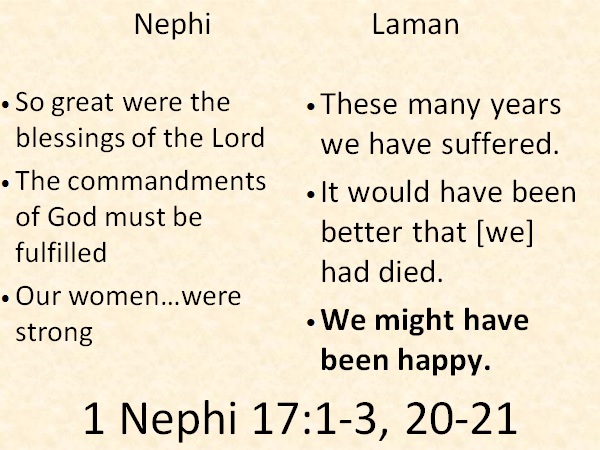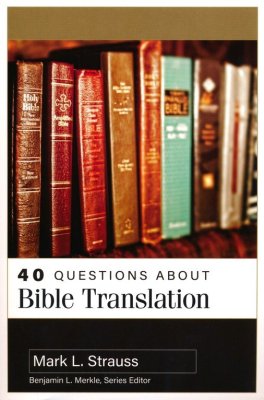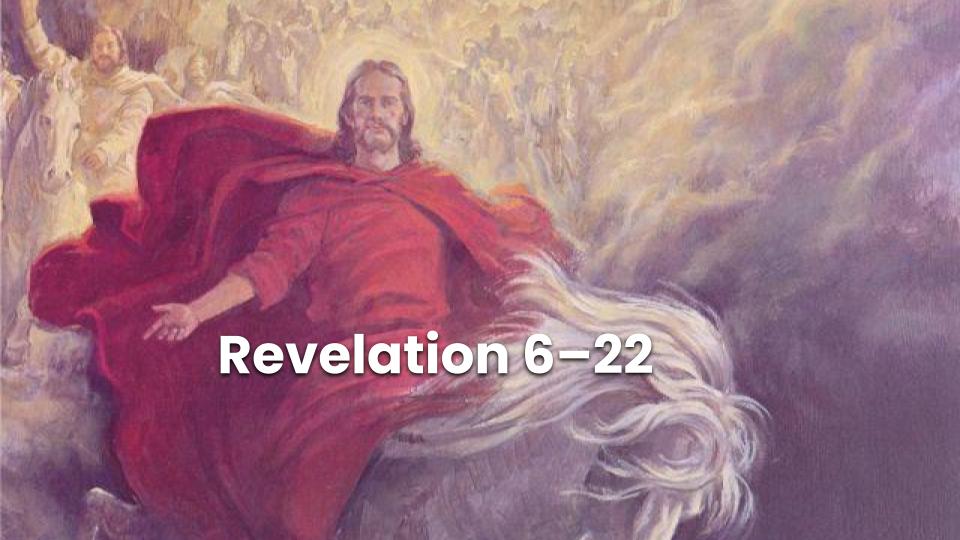While many factors lead to our happiness, much of our ability to be happy depends on our attitude. In 1 Nephi 17 we see a classic example of this principle. Laman vs. Nephi.
In 1 Nephi 17 Nephi describes the seven years that his family spent in the wilderness. Nephi and Laman were on the same trip, but saw things differently. Nephi chose to have the attitude of praising God, while Laman chose to have the attitude that he couldn’t be happy while in the wilderness. There is no doubt that for both of them life was hard—but listen to what Nephi said:
And so great were the blessings of the Lord upon us…our women…were strong…And thus we see that the commandments of God must be fulfilled.
In verses 20 and 21 we see that Laman had a different view of things. He said,
We have wandered in the wilderness for these many years; and our women have…suffered all things…it would have been better that they had died…Behold, these many years we have suffered in the wilderness, which time we might have enjoyed our possessions…yea, and we might have been happy.
That phrase in verse 21 “yea we might have been happy” is such a sad comment. Laman says, “If I were in Jerusalem, with all my stuff, then I could be happy.”
I call this the “Laman trap.” The “I’d be happy if…” syndrome. Like the young woman who says, “If I were 16 then I’d be happy.” Then she turns 16 and says, “If guys start asking me out, then I’ll be happy.” And then guys start asking her out and she says, “If I get a boyfriend then I’ll be happy.” Then she gets a boyfriend and says, “If I can break up with my boyfriend, then I’ll be happy …” and so it goes. If we say, “I’ll be happy if…” the happiness may never come. While there are medical conditions to consider, in general, you and I can choose to be happy right now. It’s our choice.
Imagine choosing to be happy in an extreme situation. For example, could you choose to be happy if you were in a Nazi concentration camp? Victor Frankl, who was in a concentration camp wrote,
We who lived in concentration camps can remember the men who walked through the huts comforting others, giving away their last piece of bread. They may have been few in number, but they offer sufficient proof that everything can be taken from a man but one thing: the last of the human freedoms—to choose one’s attitude in any given set of circumstances, to choose one’s own way
(Man’s Search for Meaning, 86, 98).
We have the power to choose. President Harold B. Lee taught,
Happiness does not depend on what happens outside of you but on what happens inside of you; it is measured by the spirit with which you meet the problems of life
(Ensign, Feb. 1974, 78).
It’s not easy, but we can choose happiness. Here’s a trick to try, the next time you think “If only ______, I might have been happy,” pause and look for what’s good in your situation. If you think, “If only my boss were a little kinder, then I’d be happy,” consider, “I’m grateful to have a job.” If you think, “If only my house were a little cleaner, then I’d be happy,” consider, “I’m grateful to have a place to live.” There are always things to be happy about if we take the opportunity to look.
Sign up to receive monthly emails with more posts like this one.






